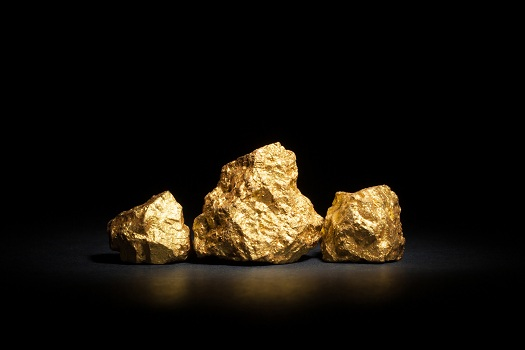Is It Possible for Gold to Rust?
Completely pure gold won’t rust, nor will it tarnish. Before you breathe a sigh of relief, know most of the gold manufactured and sold isn’t 100 percent pure. Therefore, it’s possible for gold in the forms commonly available today to rust or tarnish. The precious metals experts from First National Bullion, the silver and gold dealers San Diego collectors rely on for outstanding quality and service, explore this topic further below and offer some tips on how to protect your gold from rust and similar processes that could affect its appearance and value.
Why Gold Is (Usually) Susceptible to Rust
As mentioned above, most of the gold you’ll find today in solid form isn’t entirely pure. The reason is because pure gold is extremely soft and malleable, so it’s often mixed with alloys to increase its strength and retain its shape. While many of the alloys typically used for gold manufacturing are resistant to corrosion and rust, there’s still the possibility of having issues with rust.
What Rust Is
Also referred to as corrosion, rust is hydrated metal oxide. It occurs when metal has a reaction to moisture and oxygen, a process referred to as oxidation. If a metal isn’t affected by oxidation, it’s considered “noble.” Because gold is considered the most noble of all metals, this is why it won’t rust when pure.
How to Spot Rust on Gold
Because gold isn’t corrosive, it’s the additional metals in the gold, such as copper, that are actually rusting and producing the visible red or red-brown spots. Even gold that’s 99.99 percent pure can have rust spots because of the 0.01 percent that’s some other metal. While somewhat rare, it’s still possible for such tiny particles to react with oxygen or other chemicals to form rust.
Gold Coins Are More Susceptible to Rust
Gold coins are often designed with durability in mind, since gold in this form is more likely to be handled on a regular basis. For this reason, the percentage of actual gold in most coins is lower than what’s common with gold bars. This is why gold coins tend to be to rust. This can also apply to certain pieces of gold jewelry.
Gold & Tarnishing
Whether or not gold can tarnish also depends on the percentage of other elements present in the gold. Again, because most commonly traded and produced gold isn’t entirely pure, tarnishing—referring to a loss of luster—can happen under the right conditions.
Cleaning Tarnished Gold & Preventing Rust
If you have gold you’re not storing and preserving without ever handling it, tarnishing can happen. Should this be the case, warm water and a mild cleaning agent combined with gentle rubbing with a soft cloth should restore the luster. As for preventing rust on gold you prefer to preserve in near-perfect condition, minimize the risk of rust-related issues by:
• Storing your gold in a cool, dry place
• Keeping humidity levels in the storage area low
• Not placing gold close to different metals that could trigger a reaction in the other metals in the gold
Whether they’re veteran precious metals collectors or simply looking to buy gold bars, San Diego residents should reach out to the experts at First National Bullion. We offer a huge selection of gold, platinum, and silver items. San Diego collectors who are looking for the finest-quality coins, bars, and bullion should give us a call at (858) 304-7580 to speak with one of our precious metals experts.
The statements made in this blog are opinions, and past performance is not indicative of future returns. Precious metals, like all investments, carry risk. Precious metals and coins may appreciate, depreciate, or stay the same in cash value depending on a variety of factors. First National Bullion does not guarantee, and its website and employees make no representation, that any metals for sale will appreciate sufficiently to earn the customers a profit. The decision to buy, sell, or borrow precious metals and which precious metals to purchase, borrow, or sell are made at the customer’s sole discretion.


